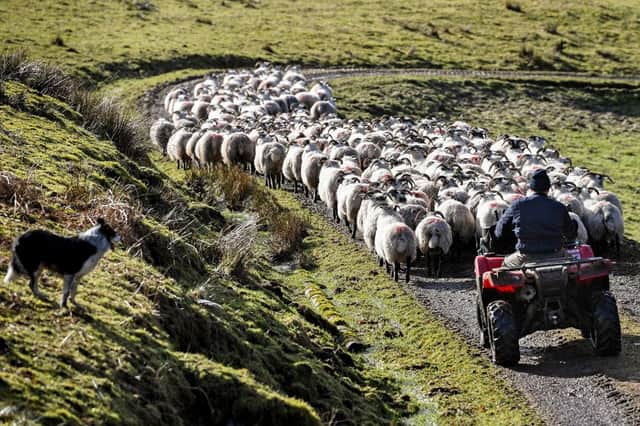Farmers will always find ways to beat challenges - Brian Henderson


The clichés fall almost as easily from the pen as does the growing list of factors which are conspiring to sap the industry’s confidence in the future.
The challenges are all around, from the ongoing effects of Brexit, the sacrificial lamb role which our politicians place the industry in as they railroad through new free trade deals and the consequences of the industry-wide shortage of labour all the way to input inflation levels which are levels of magnitude higher than elsewhere. On top of this the industry has to face up to the unavoidable impacts of climate change – for, as last week’s heatwave showed, the industry is clearly in the front line when it comes to suffering the brunt of extreme weather events.
Advertisement
Hide AdAdvertisement
Hide AdBut the sector is also being forced to carry considerably more than its fair share of the blame for the underlying processes blamed for causing global warming. The country’s livestock sector has been unfairly vilified for the production of the short-lived greenhouse gas, methane – despite the seemingly inexorable decline in the number of stock on Scotland’s hilly terrain which converts the grass on land unsuitable for growing crops into high quality, edible protein.
Policy development, buffeted by the agendas of environmental interests and pressure groups, remains slow – with the gaps in both the direction and funding of future support being filled with the sort of rumour and speculation which instil little in the way of confidence in the industry.
Taking a step back, though, with 40 years of writing about the industry’s travails now under my belt, I have to admit that there never seemed to be a time when it wasn’t facing a major struggle.
And the BSE crisis of the mid-Nineties and Foot and Mouth outbreak of 2001 certainly spring readily to mind as examples of the real existential threats which Scottish agriculture has faced in recent times.
We shouldn’t forget, though, the doom and gloom predictions which accompanied each and every reform and mid-term review of the Common Agricultural Policy, when the end of farming as we knew it was predicted on a regular basis.
However, although we might have been guilty of crying wolf in the past, the challenges seem much more real and far-reaching this time round – as well as coming from all sides.
And real change will be required to see the industry survive all these threats and come out the other side in a meaningful form – and with no single silver bullet available to cure all these ills, there’s no escaping the fact that a huge diversity of approaches will be required to see us though.
At a recent event it was made pretty plain that transferring the knowledge and skills – not only associated with new technologies and approaches but also those required to relearn some of the old skills which had been lost over recent decades – will play a crucial role in ensuring that the industry will be fit to face the future with some confidence.
Advertisement
Hide AdAdvertisement
Hide AdRather gratifyingly, one of the country’s top professors said that a recent research project had highlighted the fact that most farmers felt the farming press had a hugely important role to play in this respect.
This recognition makes it all the more difficult to reveal the disappointing news that this week will see the end of The Scotsman’s dedicated farming pages.
Like the farming world, the modern newspaper industry has changed beyond recognition – and what went before will not always continue.
So it is time to thank all those in the farming world who have over the years helped provide the comments, quotes and ideas for these pages, and also to those who edited these pages in the past and who built up the reputation of the paper which has opened doors and helped gain access – and give voice – to those willing to speak up in support of the country’s leading industry.
Subscribe
Subscribe at www.scotsman.com/subscriptions
Comments
Want to join the conversation? Please or to comment on this article.
